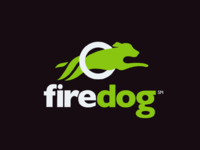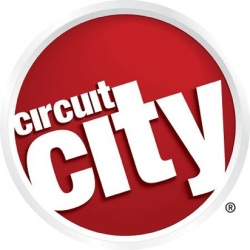Firedog Logo
 |
Firedog was the brand name through which Circuit City stores offer in-home, in-store & online services for computer repair, installation and support, and home theater product installation. With the demise of Circuit City in early 2009, the Firedog logo was put to rest. The firedog logo is a green, black, and white logo of a dog jumping through a hoop. The logo was designed to evoke the idea of Circuit City "doing whatever it takes to get the job right". The name "Firedog" was chosen because it evokes the kind of qualities Circuit City intends their technicians and installers to provide: helpful, friendly, knowledgeable and reliable. The dog is "Man's Best Friend" and Circuit City hopes that its consumers will think that the firedog's technician are the consumers' "Best Friend". |
Along with the logo, the following slogans will probably meet an end unless they figure out a way to revive the brand.
- Have no fear, Firedog is here." (September 2006 - Present)
- "Teaching old technology new tricks." (September 2006 - Present)
- "It takes a special breed to be a Firedog." (Hiring Slogan, September 2006 - Present)
- "We make technology's tail wag." (September 2006 - Present)
- "Make your computer obey." (September 2006 - Present)
- "Unleash your technology." (September 2006 - Present)
- "Your surround sound hound." (October 2006 - Present)
- "Discover a new breed of technology service" (October 2006 - Present)
- "Helps you turn life on" (October 2006 - Present)
- "Because your home theater doesn't come house broken" (January 2007 - Present)
- "Call and we'll come running." ( - Present)
Circuit City Logo
 |
| Circuit City Stores, Inc. was an American dealer and retailer in brand-name consumer electronics, personal computers, and entertainment software. In 1949, Samuel S. Wurtzel opened the first Wards Company retail store in Richmond, Virginia, at 705 West Broad Street. By 1959, Wards Company operated four television and home appliance stores in Richmond. The company continued to grow and acquired stores in other locations including Albany, New York; Mobile, Alabama; Washington, DC; and Costa Mesa, California. During the 1970s and early 1980s it also sold mail-order under the name Dixie Hifi, advertising in the hifi magazines of the day. In Richmond, Wards experimented with several retail formats including smaller mall outlets branded "Sight-n-Sound," "Circuit City," and lastly "Ward's Loading Dock," its first big-box format. The large-format store clicked with consumers, as did the Circuit City name. They were combined into the retail format of the "Circuit City Superstore," which then went national.Wards Company officially changed its name to Circuit City and became listed on the New York Stock Exchange in 1984. One of the company's early slogans was "Circuit City €” Where the Streets are Paved with Bargains." |
On November 3, 2008, Circuit City announced that it would close 155
stores and lay off 17% of its workforce by the end of the year as a
result of continuing difficulties in remaining profitable.On January
10, 2009, it was announced by a company spokesman that Circuit City
needed a buyer by January 16, 2009 to keep from shutting its doors due
to an approaching deadline set by the court and creditors. Two unnamed
parties had expressed interest in purchasing the company. However, no
bidders could be found, and Circuit City was forced to liquidate its
assets and begin going-out-of-business sales. According to Circuit
City's website, the company announced on January 16, 2009 that it
intended to close all of its stores. Reportedly, over 30,000 employees
lost jobs in the liquidation.
Maybe the logo will resurface in some fashion.